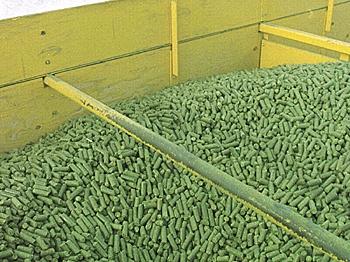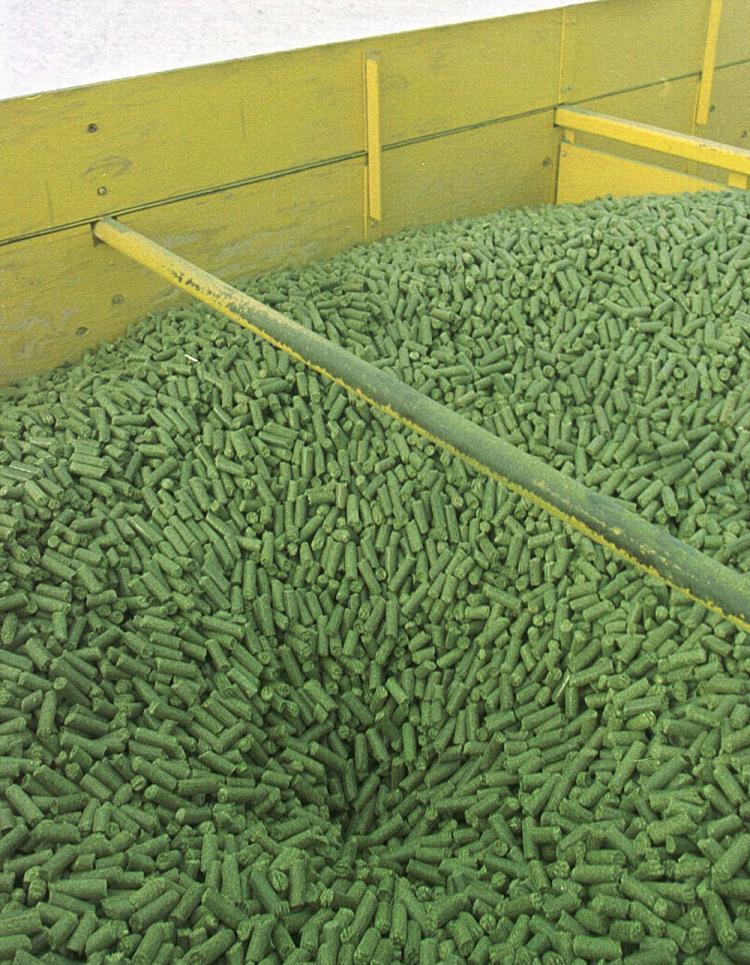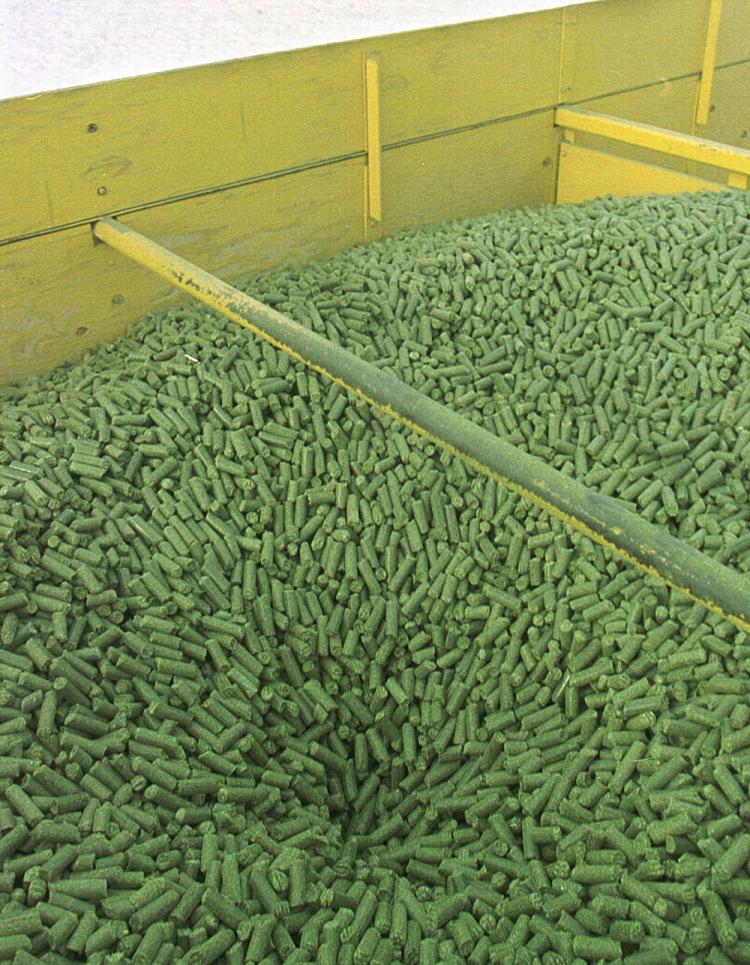Monsanto’s new GE lines could contaminate Canadian crops if approved for commercialization in the U.S., say critics
Canadian farmers are worried that a ruling prohibiting the planting of genetically engineered alfalfa in the United States may soon be overturned.
Several farmer and consumer groups are urging the U.S. Department of Agriculture (USDA) not to permit the introduction of GE alfalfa in the United States, saying the move could have an irreversible negative impact on the future of organic food and farming in Canada.
The USDA is currently inviting comments on its environmental impact statement concerning the environmental and socioeconomic impacts of allowing the deregulation of two lines of GE alfalfa produced by Monsanto Company and Forage Genetics International.
If the USDA decides in favor of the herbicide tolerant alfalfa, the current court injunction on plantings in the United States will be lifted. A hearing is scheduled for April 27.
In responding to the FDA, groups including the National Farmers Union, the Saskatchewan Organic Directorate, and Beyond Factory Farming argue that commercializing GE alfalfa in the United States would result in widespread contamination of Canadian alfalfa and loss of markets.
Arnold Taylor, national president of Canadian Organic Growers, says there are several ways in which GE alfalfa could make its way across the border, including being carried by honeybees.
“Bees don’t recognize the border, they'll fly right across that border,” he says, adding that since GE alfalfa is an “approved event” in Canada (though not approved for commercial use), there’s nothing to stop people from importing alfalfa hay, seed, feed, or pellets into Canada from the United States.
“The biggest threat is importation of seed as well as the fact that if they do deregulate in the United States, Monsanto will most certainly try to introduce it in Canada. That’s the biggest threat as far as I’m concerned.”
An important rotational crop in organic and conventional agriculture, alfalfa’s many attributions make it particularly important in organic farming.
The plant prevents erosion, is a soil builder that aids soil fertility, and its competitive nature gives it the ability to crowd out weeds—making it invaluable in organic agriculture where using herbicides and fertilizers is not an option.
GE crops are also not an option. In compliance with organic standards worldwide, Canada prohibits the use of GE organisms in organic production. Contamination, says Taylor, would almost certainly destroy organic agriculture in many areas.
“This alfalfa thing is directly aimed at the heart of organic farming because without alfalfa it’s going to be a big disaster. The biggest threat to us is once that [genetically modified organism] gets into our alfalfa, we won’t be able to seed alfalfa and there’s no substitute for alfalfa for soil building,” said Taylor.
In addition, animals that consume contaminated alfalfa could no longer be classified as organic, and organic dairy production would become extremely difficult, if not impossible, once feedstock became contaminated.
The USDA supports the “co-existence” of GE crops with conventional and organic crops. In its environmental impact statement, the agency suggests that contamination is unlikely to occur because alfalfa is typically harvested before 10 percent of the plants reach full flower.
Canadian farmers are worried that a ruling prohibiting the planting of genetically engineered alfalfa in the United States may soon be overturned.
Several farmer and consumer groups are urging the U.S. Department of Agriculture (USDA) not to permit the introduction of GE alfalfa in the United States, saying the move could have an irreversible negative impact on the future of organic food and farming in Canada.
The USDA is currently inviting comments on its environmental impact statement concerning the environmental and socioeconomic impacts of allowing the deregulation of two lines of GE alfalfa produced by Monsanto Company and Forage Genetics International.
If the USDA decides in favor of the herbicide tolerant alfalfa, the current court injunction on plantings in the United States will be lifted. A hearing is scheduled for April 27.
In responding to the FDA, groups including the National Farmers Union, the Saskatchewan Organic Directorate, and Beyond Factory Farming argue that commercializing GE alfalfa in the United States would result in widespread contamination of Canadian alfalfa and loss of markets.
Arnold Taylor, national president of Canadian Organic Growers, says there are several ways in which GE alfalfa could make its way across the border, including being carried by honeybees.
“Bees don’t recognize the border, they'll fly right across that border,” he says, adding that since GE alfalfa is an “approved event” in Canada (though not approved for commercial use), there’s nothing to stop people from importing alfalfa hay, seed, feed, or pellets into Canada from the United States.
“The biggest threat is importation of seed as well as the fact that if they do deregulate in the United States, Monsanto will most certainly try to introduce it in Canada. That’s the biggest threat as far as I’m concerned.”
An important rotational crop in organic and conventional agriculture, alfalfa’s many attributions make it particularly important in organic farming.
The plant prevents erosion, is a soil builder that aids soil fertility, and its competitive nature gives it the ability to crowd out weeds—making it invaluable in organic agriculture where using herbicides and fertilizers is not an option.
GE crops are also not an option. In compliance with organic standards worldwide, Canada prohibits the use of GE organisms in organic production. Contamination, says Taylor, would almost certainly destroy organic agriculture in many areas.
“This alfalfa thing is directly aimed at the heart of organic farming because without alfalfa it’s going to be a big disaster. The biggest threat to us is once that [genetically modified organism] gets into our alfalfa, we won’t be able to seed alfalfa and there’s no substitute for alfalfa for soil building,” said Taylor.
In addition, animals that consume contaminated alfalfa could no longer be classified as organic, and organic dairy production would become extremely difficult, if not impossible, once feedstock became contaminated.
The USDA supports the “co-existence” of GE crops with conventional and organic crops. In its environmental impact statement, the agency suggests that contamination is unlikely to occur because alfalfa is typically harvested before 10 percent of the plants reach full flower.







